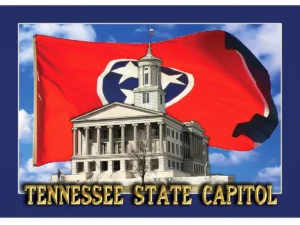 Hell is empty and all the devils are here.
Hell is empty and all the devils are here.
Obviously, Shakespeare wasn’t writing about the United States of America or the state of Tennessee when he penned those words in “The Tempest” in 1610. But he certainly could have been. As Donald Trump and Elon Musk run roughshod over the U.S. Constitution while Congress and the courts sit idly by, those of us in Tennessee have troubles of our own.
Our General Assembly has taken a big first step toward weakening, and perhaps ultimately dismantling, public education in this state.
During a special session of the legislature called by Governor Bill Lee, the Senate and House of Representatives approved the “Education Freedom Act of 2025,” which diverts students and the tax money that follows them from public to private schools. If you follow the news, you know the basics. For starters, Governor Lee tied this legislation to long-overdue relief for victims of Hurricane Helene in East Tennessee and to the establishment of a centralized immigration enforcement agency. Not a unique way to get questionable legislation passed, but greasy nonetheless.
I have no problem with parents educating their children in any way they wish. Want to send your kids to an elite private school with impressive academic credentials? Do it. Want to educate your kids at home around the kitchen table? Do it. Want to send your kids to a school in line with your religious beliefs? Do it.
But if you choose to educate your children in any way other than the public schools, you must pay for that education yourself.
That’s how it has worked in most places, including Tennessee, until now. But thanks to the law that just passed, 20,000 students will be awarded vouchers in the amount of $7,000 to attend private school in 2025-2026. Half of these students must be “low income,” defined by our lawmakers as coming from families with an annual income of less than $173,000. (I could fill the rest of my allotted column space by writing hahahahaha over and over again, but I won’t.) There are no income requirements for the remaining 10,000 students.
It’s unclear exactly who qualifies for these vouchers. Are students with physical, intellectual or emotional disabilities eligible? What about students who aren’t fluent in English? Or racial and religious minorities? How will students who live in areas where there are no private schools, which is true of more than half the counties in Tennessee, benefit from vouchers? If a student who receives a $7,000 voucher wants to attend a private school with higher-than-that tuition, who makes up the difference? And how will that student get to and from school every day?
Lots of questions. Not many answers.
Legislators who support the voucher program claim it won’t funnel tax dollars from public schools, which they promise will continue to be fully funded. Perhaps that’s true for a year or two. But as the number of students who receive vouchers grows and the number of private schools increases, funding both public and private schools with taxpayer dollars won’t be sustainable. Governor Lee knows that. The General Assembly knows that. We all know that. This law will help the “haves”–two-thirds of the voucher “scholarships” are predicted to go to students already enrolled in private schools–and leave the “have-nots” in the dust. As usual.
What can public schools advocates do? First, find out how your lawmakers voted on the Education Freedom Act. If you called or emailed your legislators, did you hear back? If so, was the response honest and straightforward or nothing but gobbledygook? The list of how each legislator voted is online, but for local readers of this column, I’ll save you some time. Senator Paul Bailey and Representatives Ryan Williams and Cameron Sexton voted in favor of school vouchers.
Know this. They didn’t receive lifetime appointments to the General Assembly. If you’re unhappy with their stand on school vouchers and/or other issues, vote accordingly in 2026.
(February 8, 2025)